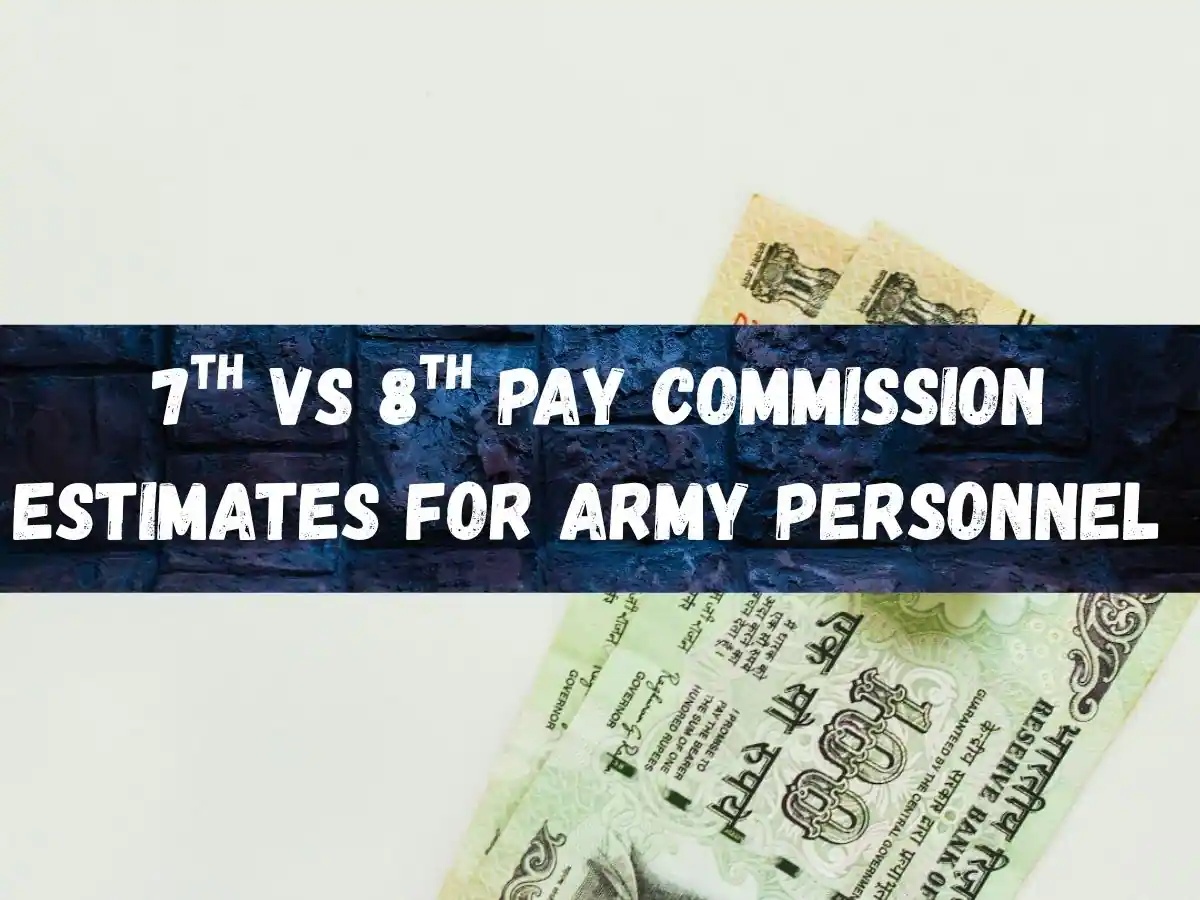
Indian Army Personnel Await 8th Pay Commission Salary Revisions
Indian Army personnel, including non-commissioned officers (NCOs), junior commissioned officers (JCOs), and commissioned officers, are closely monitoring the 8th Pay Commission’s proposed salary revisions. The upcoming adjustments, based on a 2.28 fitment factor, are expected to significantly impact the basic pay structures of various ranks. While the exact figures remain speculative, the commission’s recommendations could lead to substantial financial benefits for millions of central government employees, including those in the Indian Army. The 8th Pay Commission’s findings will not only affect current salaries but also set the foundation for future wage adjustments, reflecting the government’s commitment to improving public sector compensation. However, the final decisions may vary from initial projections, as the process involves multiple stakeholder inputs and cabinet approvals.
Salary Projections for Different Ranks in the Indian Army
The 8th Pay Commission’s salary estimates for Indian Army personnel are based on the 2.28 fitment factor, which serves as a multiplier for existing pay scales. For non-commissioned officers, the projected basic pay ranges for JCOs are estimated to fall between Rs 56,100 and Rs 1,77,500. Junior commissioned officers, including lieutenants and captains, are anticipated to see revised salaries spanning Rs 61,300 to Rs 1,93,900. Commissioned officers, such as majors and lieutenants colonels, are projected to receive pay increases ranging from Rs 69,400 to Rs 2,17,600. Higher-ranking officers, including majors generals and lieutenant generals, are expected to benefit from adjustments that could elevate their basic pay to as high as Rs 2,24,100. These projections, while subject to final approval, highlight the potential for widespread financial improvement across the military hierarchy.
Process and Timeline for 8th Pay Commission Recommendations
The 8th Pay Commission’s recommendations are undergoing a rigorous process that involves multiple stages of review and validation. Following the selection of the commission’s chairman and members, the team will conduct extensive consultations with government departments, employee unions, and other relevant stakeholders. These discussions will focus on refining salary, pension, and allowance structures to ensure they align with current economic conditions and labor market trends. Once the commission’s report is finalized, it will be submitted to the Cabinet for approval. If approved, the revised pay scales will take effect, potentially leading to immediate financial benefits for affected personnel. The timeline for implementation remains uncertain, but the commission’s work is critical in addressing long-standing concerns about public sector wage stagnation.
Impact of Fitment Factor on Central Government Employees
The 2.28 fitment factor is central to the 8th Pay Commission’s salary revision framework, which applies to all central government employees, including those in the Indian Army. This multiplier is designed to account for inflation, cost of living adjustments, and other economic factors that have influenced wage demands over the years. For many employees, the fitment factor represents a significant opportunity to improve their standard of living and financial stability. However, the exact application of this factor may vary across different categories of employees, depending on their specific pay scales and allowances. The commission’s recommendations are expected to address disparities in compensation and ensure a more equitable distribution of financial benefits across the public sector workforce.
Future Implications for Indian Army Personnel
The 8th Pay Commission’s salary revisions are poised to have lasting implications for Indian Army personnel, potentially reshaping their financial planning and career trajectories. The proposed adjustments, while still subject to final approval, signal a positive shift toward addressing long-standing issues of wage stagnation and inflationary pressures. For NCOs, JCOs, and commissioned officers, the revised pay scales could lead to improved quality of life, reduced financial stress, and greater job satisfaction. Additionally, the commission’s recommendations may set a precedent for future wage adjustments, ensuring that military personnel receive fair compensation that reflects their service and responsibilities. As the process unfolds, the Indian Army will likely continue to monitor developments closely, ensuring that the final decisions align with the needs of its personnel and the broader public sector workforce.




